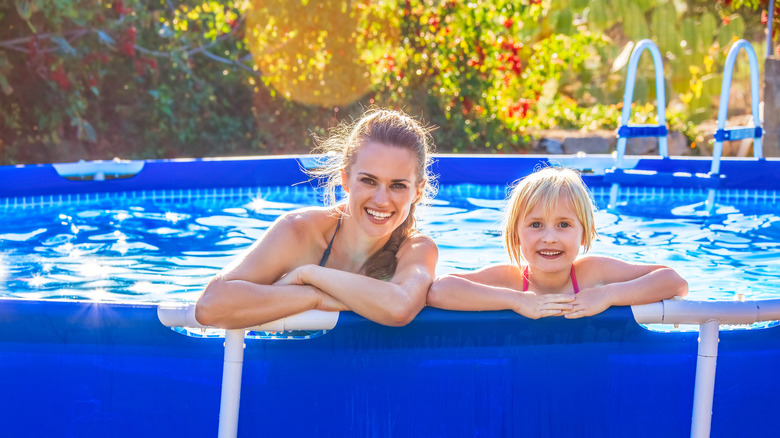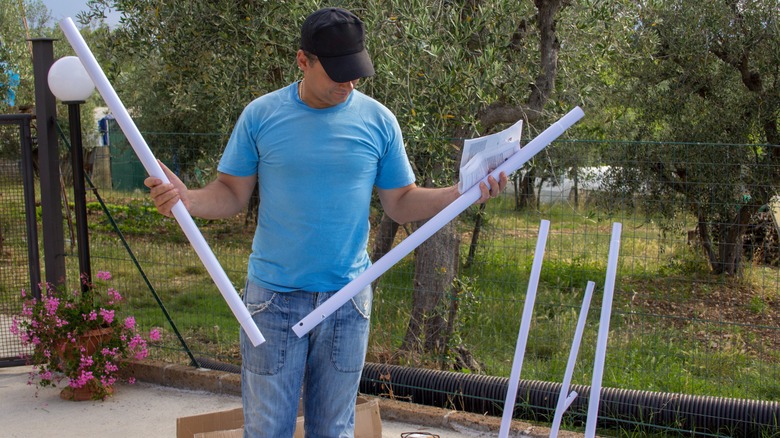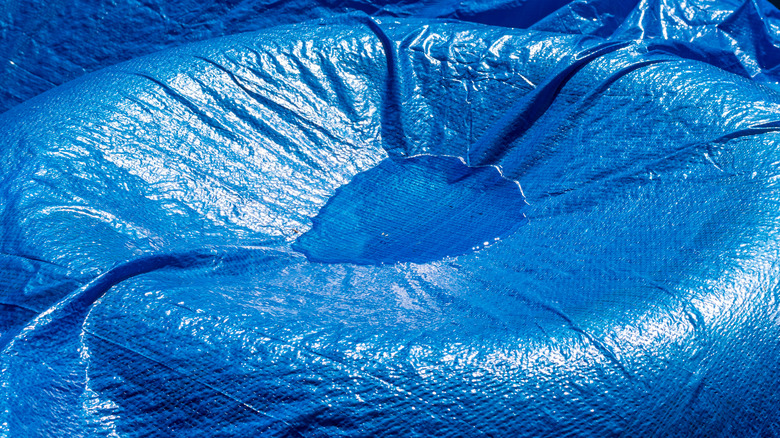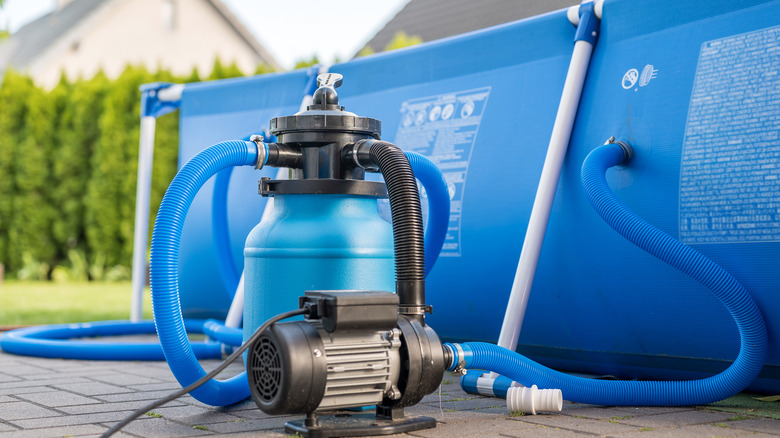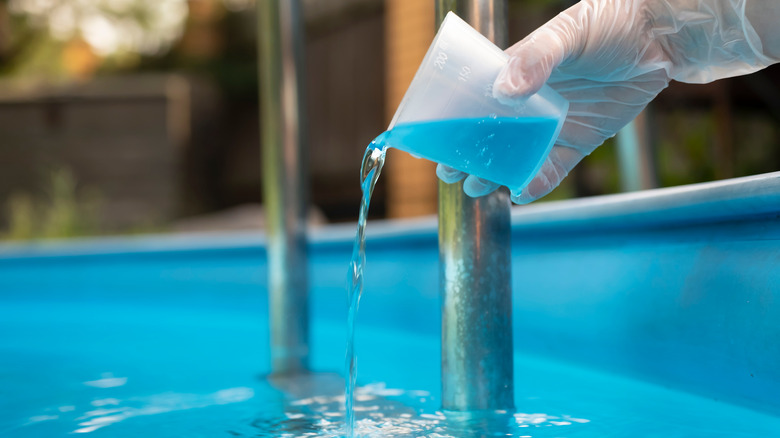The Hidden Drawbacks To Buying A DIY Swimming Pool Online
Once the warmer weather begins to roll in, there's nothing like diving or going for a float in a swimming pool. Unfortunately, creating your own backyard paradise is a major investment in time and money. In-ground installation can take months, cost tens of thousands of dollars, and requires year-round maintenance to ensure the water stays clean and properly treated.
Because of this, above-ground pools are a more popular option for those wanting something more cost-effective and easy to maintain. A quality above-ground pool will only run you about $3,000 on average, but that's still a high price to pay for a bit of summer fun. Enter the do-it-yourself pool kit. These pools, often available through online retailers like Amazon and Walmart, usually carry a shockingly low price tag, tempting buyers on the hunt for a good deal. However, these kits often sacrifice quality and durability in the name of savings, leaving you with a product that carries more risk than reward.
Installation is difficult
The first major problem with a DIY swimming pool is right in the name. Building a pool yourself is no simple task, and unless you're prepared to stare quizzically at a confusing instruction manual for several hours, it can be incredibly frustrating. Assembling IKEA furniture is difficult, but it's usually quick and low-risk once you get the hang of it. It's okay if your BILLY bookcase is a little rickety after it's put together, but a couple of missed screws in a pool holding 3,000 gallons of water might spell disaster.
Pool installation also requires more than just assembly. To ensure your water is level, the ground must be completely flat, typically requiring a bit of digging to even out even the most minor slopes. Once you've flattened the area, there's also the drainage issue. Slippery mud and consistently-flooded grass are a recipe for falls, dirty water, and even mosquitos. Finally, there's the task of running electricity to the pool to power the filtration system. A poorly-connected extension cord haphazardly draped across a puddle will leave you fried, not just from the harsh summer sun.
They're usually made of low-quality materials
When an item is significantly cheaper than other options on the market, it's safe to assume that the manufacturers had to cut corners somewhere. Sometimes, this isn't a big deal — a cheaply-made décor piece isn't the end of the world — but when it comes to a pool, you want to ensure you're investing in quality materials that will stand the test of time. At best, a low-cost pool will last a few summers and then inevitably begin to deteriorate, but at worst, you could be left with something that isn't even usable in the first place.
The main goal of most of these manufacturers is to produce and sell enough products to turn a profit, even at a low price, so the priority is cutting down the production cost as much as possible with thin, low-cost materials. Buying something ultra-cheap might seem like a bargain now, but it won't save you money in the long run if you have to replace it year after year.
They lack proper filtration systems
If you hire a professional to install your above-ground swimming pool, filtration is often one of their top priorities. This is because stagnant water creates a breeding ground for bacteria, protozoa, and amoebae that can make you sick, not to mention the obvious debris and dirt that can make for an unpleasant and unwelcoming swimming experience. Smaller pools, like baby pools and inflatable options, don't need a filter because they're regularly dumped and refilled after a use or two, but filling an above-ground pool every time you want to go for a swim is ridiculous and costly.
Higher-quality above-ground pools will have a filtration and sanitization system like their in-ground counterparts. They still require regular maintenance and treatment to ensure the water stays safe for swimming and germ-free, but starting with an adequate filtration system will make your job much easier when it comes time to clean and treat the water.
They can pose safety risks
Along with the obvious financial risk of investing in a pool of materials that won't last, low-quality options also carry a more direct physical risk, especially if you have kids. Poorly-constructed ladders, easily-collapsable walls, and thin plastic covers can create a recipe for drowning, even if you keep an eye on your children and supervise them properly. It only takes a minute or two for a child to drown, and getting trapped or tangled up in flimsy materials can delay a rescue in that critical time.
There's also the issue of shallow water. The temptation to dive or splash into a pool is strong, especially with an easily accessible ladder that creates the perfect jumping-off point, but a pool shipped to your door in a box will usually only be a few feet deep. Diving head-first without enough water below to create a cushion is a recipe for concussions and other head injuries.
They're not a good fit for beginner pool owners
Going for something low-cost and seemingly low-risk is logical if you're just getting started as a pool owner. Only pouring a few hundred dollars into a summer splash pad compared to a couple thousand is the smarter option on paper, but the opposite could actually be true. When you have a pool professionally installed, you're working with people with solid experience in their field. They'll set you up with proper filtration, wiring, and construction to give you a quality base, and they can answer your maintenance questions.
When you choose to build your pool yourself, however, you're going in blind, often working with tools that set you up for failure no matter how much post-purchase googling you do. Instead of jumping in on a low-cost online pool, do yourself a favor and visit the community pool or a friend's house for a few summers while you save up, then invest in something safer that's built to last.
